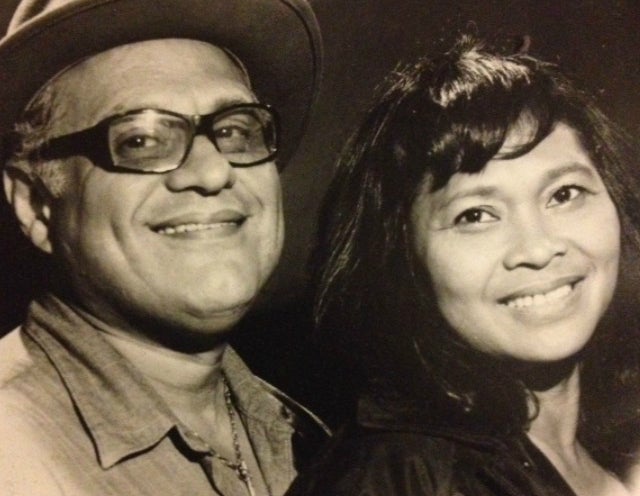
Reynaldo Ramirez, 63, remembers the day his wife, Emelina, turned to him and said, “Let’s get healthy!” Together, they changed their diet and began exercising. Within six months Reynaldo says he lost 45 pounds and got down to 200 pounds. “When I went in for my annual checkup, I expected to pass with flying colors,” he says. However, blood work revealed low hemoglobin and hematocrit (H&H) levels, because his last coloscopy was four years ago, Dr. James Martinez with Lovelace Medical Group, performed an upper endoscopy, and found gastric cancer. “When I got a call from Dr. Martinez, I knew something was not right. I’m a nurse. I know the doctor is not going to call you if your labs are good.” At the age of 61, Reynaldo was told he had gastric cancer.
“It was a shock,” he adds. “It was surreal. You can’t imagine you’re having that conversation, because you feel fine. In fact, I hadn’t felt better.”
After more scans and tests showed the cancer had not metastasized, Dr. Martinez determined, in addition to chemotherapy to fight his cancer, Reynaldo would be a good candidate for surgery and referred him to Dr. Mario Leyba, also with Lovelace Medical Group. They met and Dr. Leyba explained to Reynaldo how he would remove a portion of his stomach and the top part of the small bowel using robotic surgery. “Dr. Leyba explained how it all worked. I felt pretty confident going into surgery. When you’re up against something like cancer, you have to have faith in your doctor.”
Reynaldo underwent surgery to remove the cancer, but unexpectedly the procedure took more time than Dr. Leyba had first advised. Emelina nervously waited. “It takes a special kind of person to recognize that and be considerate of her feelings,” Reynaldo says of Dr. Leyba immediately addressing Emelina’s concern and explaining the extra time when he walked into the waiting room.
Recovering at Lovelace Women’s Hospital after his procedure, Reynaldo says he was happy that he had a doctor who would answer all of his questions. “Every interaction I had with him, I always felt he was there to listen to me and to answer my questions,” he says. “He never made me feel hurried.”
Today, Reynaldo feels fortunate to be cancer-free and credits his doctors who found and successfully treated his cancer at an early stage. “There’s really hardly any change in my life other than I’m more cognizant of what I eat and I don’t eat late at night,” he adds.




